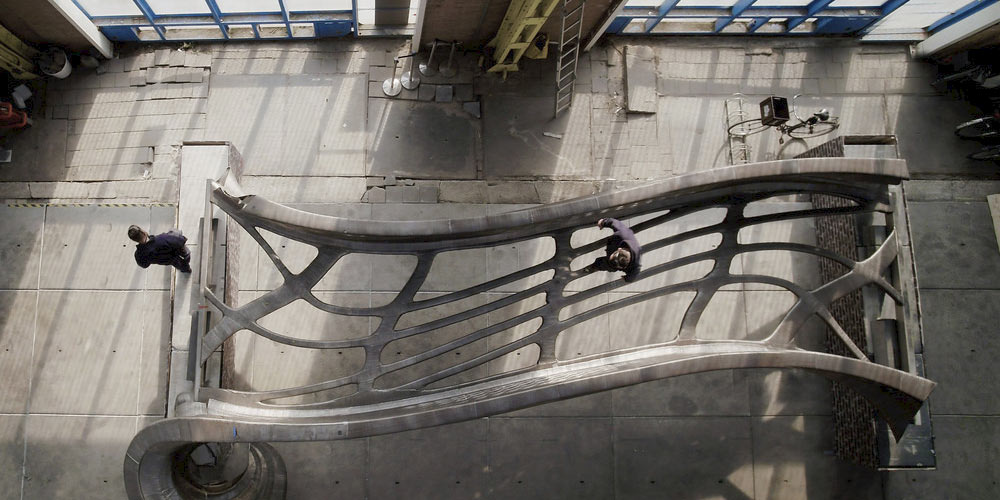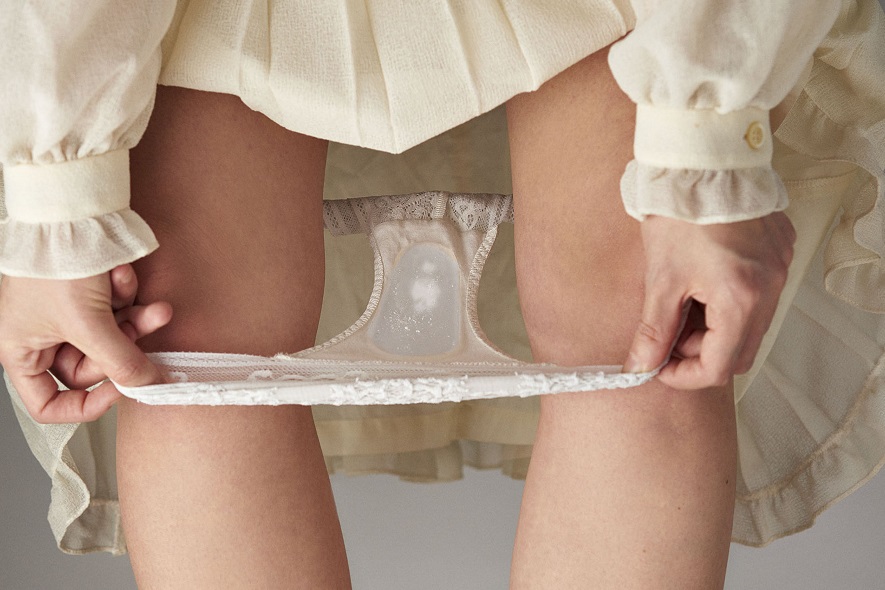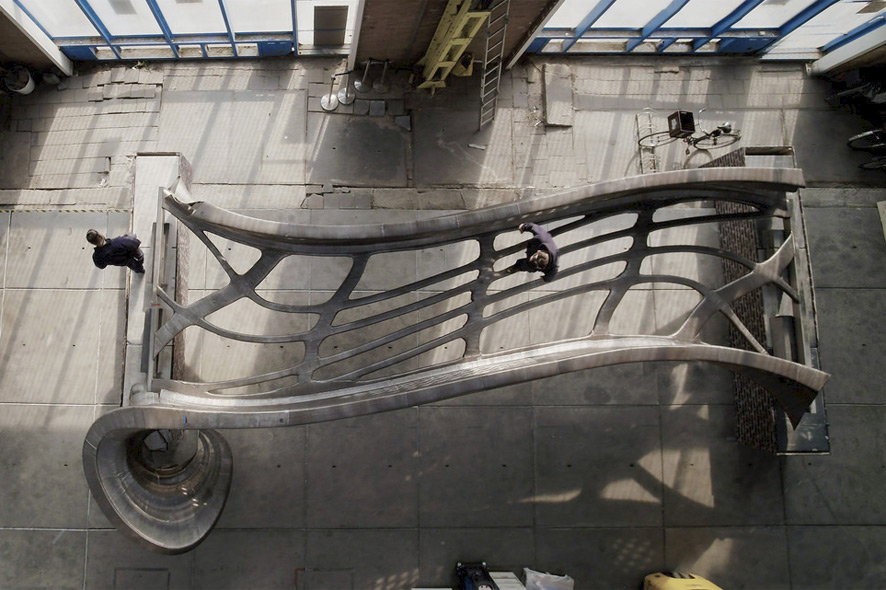Der STARTS Day am Freitag wird das Potential zukünftiger Innovatoren beleuchten und außerordentliche Beispiele von Innovation an der Schnittstelle von Kunst, Wissenschaft und Industrie zeigen. Der Tag orientiert sich am STARTS Programm und präsentiert Besuchern durch verschiedene Diskussionsformate, Präsentationen von außergewöhnlichen Projekten sowie theoretische Reflektionen die Rolle von STARTS Kooperationen.
In Kooperation mit der Europäischen Union.
| FR 7. September 2018: 10:00 – 12:00 | STARTS Collaborations |
| FR 7. September 2018: 12:00 – 13:00 | Embracing the Risk: STARTS Talks |
| FR 7. September 2018: 14:00 – 15:30 | STARTS Guided Tours |
| FR 7. September 2018: 15:30 – 17:30 | AI in Art & Science, Strategy for responsible Innovation |
STARTS Collaborations / POSTCITY
FR 7. September 2018, 10:00-12:00
POSTCITY, Lecture Stage
Artists, Kreativprofis, WissenschaftlerInnen und IndustrievertreterInnen, die in den Bereichen Wissenschaft, Technologie und Kunstkooperationen sowie Residency Programmen tätig sind, geben Einblicke in ihre Erfahrungen, diskutieren zukünftige Strategien und informieren über die nächsten STARTS-Möglichkeiten.
Initiatives: STARTS Residencies, Trust in Invisible Agents as part of Create-IoT, STARTS Prototyping: WEAR Sustain, The Tech+Art Incubator, Ars Electronica Futurelab, E.A.T. Residencies at Nokia Bell Labs, ArtScience Museum,
European Digital Art and Science Network,
Speakers: Christophe De Jaeger (BE), Hugues Vinet (FR), Yann Deval (FR), Marie Ghislaine Losseau (BE), Jason Crouch (UK), Camille C. Baker (CA/UK), Maurizio Montalti (IT/NL), Nadav Hochman (IL), Markus Dorninger (AT), Horst Hörtner (AT), Julia Kaganskiy (US), Honor Harger (NZ), Veronika Liebl (AT), Robertina Šebjanič (SI), Gjino Šutič (HR), Moderation: Lucas Evers (NL)
Embracing the Risk: STARTS Talks
FR 7. September 2018, 12:00-13:00
POSTCITY, Conference Hall
Zum Glück für uns gibt es Menschen, die sich unserer Zerbrechlichkeit widersetzen und direkt ins Risiko stürzen. Pioniere der menschlichen Innovation scheuen keine Gelegenheit Fehler zu begehen indem sie sich komplexe Projekte einfallen lassen und schließlich realisieren. So entstehen Z.B. Roboter, die während des Prozess der Konstruktion Stahlbrücken auch gleich planen oder ein Over-the-Counter-Kit für hausgemachte, maßgeschneiderte Heilmittel für die Vaginalgesundheit. „Embracing the Risk“ präsentiert zwei Projekte, die nur durch Kühnheit und hohe Fehlerbereitschaft möglich waren und mit dem STARTS Prize’18 ausgezeichnet wurden.
Speakers: Tim Geurtjens (NL), Giulia Tomasello (IT), Sophie Lamparter (CH), Alexander Mankowsky (DE)
Moderation: Barbara von Rechbach (AT)
STARTS Guided Tours
FR 7. September 2018, 14:00-15:30
POSTCITY, WE GUIDE YOU Meeting Point
AI in Art & Science, Strategy for responsible Innovation
FR 7. September 2018, 15:30-17:30
POSTCITY, Conference Hall
Es scheint, dass der nächste große Sprung im Umgang mit unseren Fehlern von der Delegierung der Problemlösung an künstliche Intelligenz oder offizielle Stellen hin zur Entwicklung und Förderung einer ausgefeilten sozialen Intelligenz und ethischen Verantwortung gehen muss. Diese Verantwortung umfasst die Förderung kreativer Praktiken ebenso wie die Offenheit für Polymathematik und interdisziplinäre Ansätze. Es besteht die starke Erwartung, dass kunstwissenschaftlich-technische Kooperationen eine wertvolle Strategie für die Entwicklung neuer und bisher unbekannter Ansätze darstellen, indem sie Fehler aufgreifen und die Vielfalt fördern, die eine Reflexion über sich selbst und ihre Auswirkungen auf die Gesellschaft ermöglicht. Diese Reflexionen sind für die Schaffung funktionierender Mensch-Maschine-Schnittstellen in den weiteren Entwicklungsschritten der Künstlichen Intelligenz unerlässlich.
Speakers: Roberto Viola (IT), Beth Singler (UK), Derrick de Kerckhove (CA), Chris Salter (CA), Sputniko! (JP), Anna Maria Brunnhofer (AT), Pierre Barreau (FR), Mark Coeckelbergh (BE/AT), Moderation: Mark Coeckelbergh (BE/AT)
Biografien
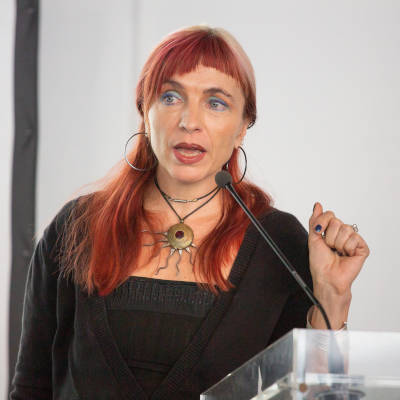
Camille C. Baker (CA/UK)
Camille C. Baker is a Reader at the School of Communication Design, University for the Creative Arts, Epsom, UK. She is also a media artist-performer/researcher/curator who has done recent work in participatory mobile and sensor performance using wearable technologies, and is now exploring creative coding and electronic development for smart-fashion projects. Her other research interests have included: responsive interfaces and environments, video art and live cinema, experience design, telematics, networked communities, web animation, digital media curating, and music composition and performance.
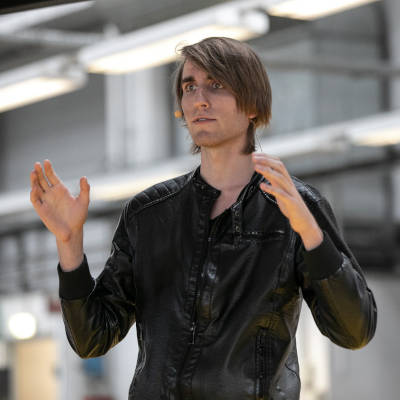
Pierre Barreau (FR)
Pierre Barreau is co-founder and CEO of AIVA, the Artificial Intelligence composing emotional soundtrack music. As a computer scientist, award nominated director and composer, he leads the company towards its vision of establishing AIVA as one of the greatest composers of all time, and fuelling the world with personalised music.
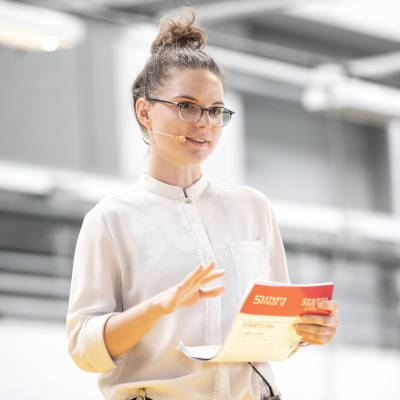
Anna Maria Brunnhofer (AT)
Anna Maria Brunnhofer works at the interface of business and creativity in strategy and experience consulting. Her focus is on contemporary technologies and their potential to change existing structures. With her broad background in economics and ethics, fashion design, art studies, and philosophy, her holistic approach to physical and digital matters is a particular strength.
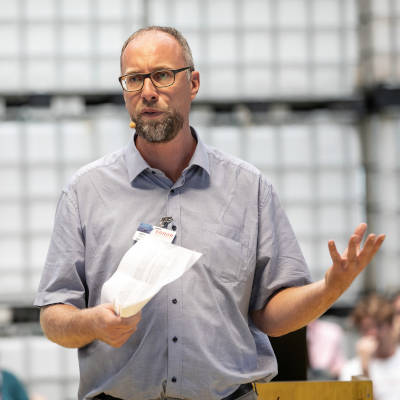
Mark Coeckelbergh (BE/AT)
Mark Coeckelbergh is Professor of Philosophy of Technology and Media at the University of Vienna, Austria, and President of the international Society for Philosophy and Technology. He is also member of the High Level Expert Group on Artificial Intelligence, European Commission, and the Robotics Council of the Austrian government. He is the author of 9 books and numerous publications. He is the author of 9 books and numerous article publications. His specialization is ethics of new and emerging digital technologies, in particular robotics and artificial intelligence. He contributes to international and national policy making in these areas, and is interested in connections between technology, art, and philosophy.
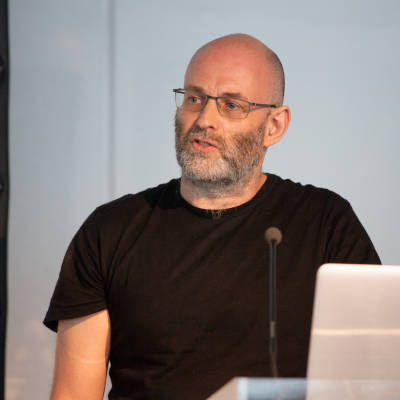
Jason Crouch (UK)
Jason is an artist and digital consultant with a particular interest in contemporary performance practice. In theatre he has worked as a producer and production manager for large scale, site-specific performance, and as both a technical specialist and playwright for more intimate work. Jason recently completed his PhD at Manchester Metropolitan University, where his research investigated digitally mediated intimacy expressed as one-to-one performance practice.
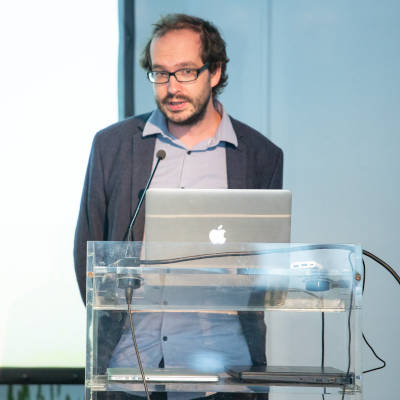
Yann Deval (FR)
After studying the history of cinema in La Sorbonne and studying editing and audio-visual post-production in Cannes, he settled in Brussels in 2006 where he developed his activities as motion-designer and VFX artist.
He works for the film industry (Mood Indigo by Michel Gondry…), music-videos, documentaries for Arte…
He co-directs ATLAS, an extended reality experience, that has been played at Venice Biennale of Architecture, EU@SXSW Austin, IRCAM Centre-Pompidou Paris…
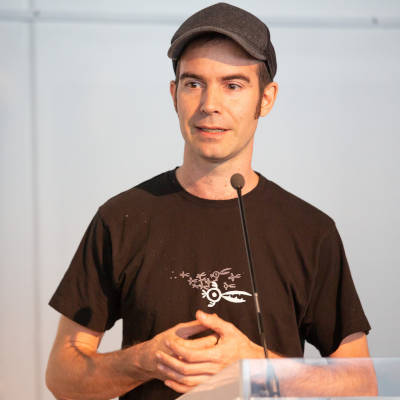
Markus Dorninger (AT)
Markus Dorninger is a digital artist and designer. His work comprises projection interventions in public space, as well as live performances and interactive installations. He often collaborates with musicians, and much of his output is based on improvisation and freestyle storytelling. He is a co-founder of OMAi, and the inventor and designer of Tagtool, the instrument for spontaneous visual expression.
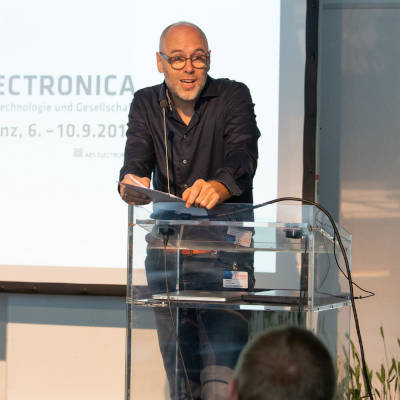
Lucas Evers (NL)
Lucas Evers joined Waag Society in April 2007 and is currently leading Waag Society’s Open Wetlab, bringing bio art, bio design, bio technology, bio sciences and the public together to research and understand biotechnologies and the way they effect our society in a hands-on and ‘Doing It Together’ manner . He is actively involved in several projects at the crossroads of art, design, science and technology.
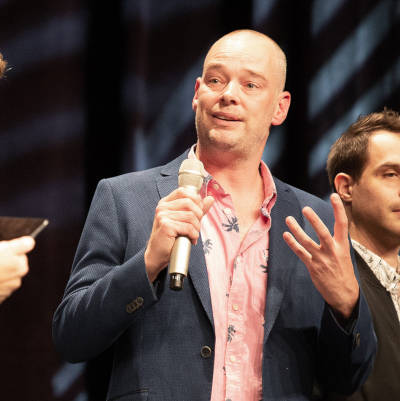
Tim Geurtjens (NL)
After a study mechanical engineering, Tim Geurtjens (1976) attended the Design Academy Eindhoven in 2003 where he graduated 4 years later. Since then he has been working as CTO for Joris Laarman Lab, best known for its experimental designs inspired by upcoming technology. Over the last 7 years he developed extensive knowledge of exotic materials and cutting edge technologies, specifically novel digital fabrication methods.
Tim is co-founder and Board Member of MX3D, a company that developed several large-scale 3D printers that use 6-axis industrial robots. These printers allow them to print very large structures in many different materials such as thermoset plastics, stainless steel or aluminium. MX3D is laying the last hand on their 3D-printed steel bridge over a canal in Amsterdam.
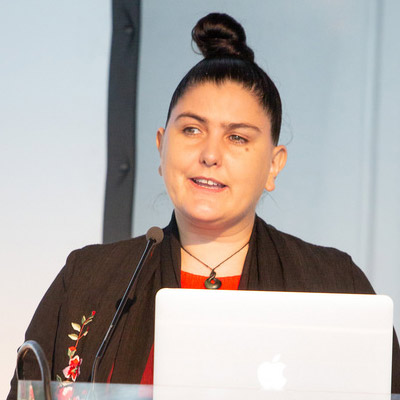
Honor Harger (NZ)
Honor Harger is a curator from New Zealand interested in the cultural impact of scientific ideas and how digital technology is shaping society. She is the Executive Director for ArtScience Museum Singapore. Since, she joined, ArtScience Museum has held large-scale exhibitions by some of the world’s best known artists including Leonardo da Vinci, Salvador Dalí and M.C. Escher, as well as presenting significant exhibitions that explore aspects of science, including big data, particle physics, natural history, marine biology, cosmology and space exploration.
Prior to joining ArtScience Museum, Honor was the director of Lighthouse, a digital arts venue in Brighton, UK. In 2010, she was guest curator of the transmediale festival in Berlin, and from 2004 – 2008, was director of the AV Festival the UK’s largest biennial of digital art, film and music. She was also the first curator of webcasting for Tate, where she also curated events and concerts at Tate Modern from 2000-2003. Honor is one of the co-founders of the sound art collective, r a d i o q u a l i a. One of their main projects was Radio Astronomy, a radio station broadcasting sound from space. Honor has given talks at conferences and festivals such as LIFT, TED, SciFoo, Webstock, MuseumNext, Ars Electronica, Innovative City Forum, and World Architecture Festival, as well a lecturing at the European Space Agency, the Centre Pompidou, MIT, California Institute of the Arts, and the American Film Institute and other places.
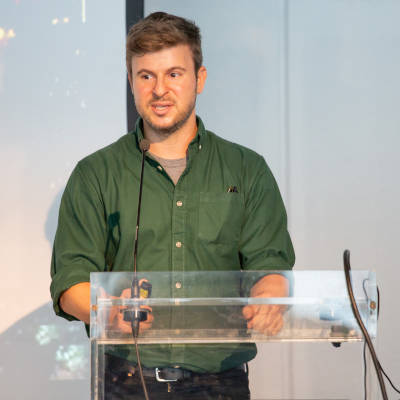
Nadav Hochman (IL)
Nadav Hochman is the director of a digital art initiative at The Tech Museum of Innovation (Silicon Valley, CA, USA), catalyzing new collaborations between global artists, industry, and research institutions. Prior to joining The Tech, Nadav Hochman led acclaimed projects in the startup industry, academia, and the art world. His work has been featured in media outlets such as Popular Science, The Atlantic, Wired, and The Guardian. Nadav Hochman holds a PhD in Art and Information Science.
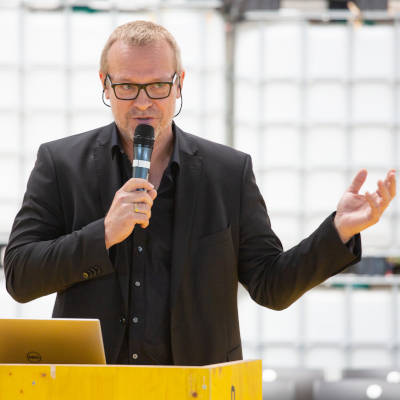
Host Hörtner (AT)
Senior Director
Horst Hörtner is a media artist and researcher. He is expert in design of Human Computer Interaction and holds several patents in this field. He started to work in the field of media art in the 1980ies and co-founded the media art group x-space in Graz/Austria in 1990. Hörtner is founding member of the Ars Electronica Futurelab in 1996 and since then directing this atelier/laboratory.
Since 2013, Horst Hörtner also holds a position as conjoint Professor at the University of Newcastle/Australia. He is working in the nexus of art & science and giving lectures and talks at numerous international conferences and universities.
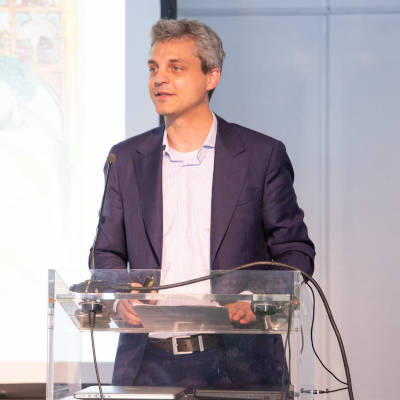
Christophe De Jaeger (BE)
Christophe De Jaeger is responsible for the programme of media arts and the relation between arts and industry in the Center for Fine Arts. On a freelance basis he curated exhibitions in Belgium and abroad (USA, China) with international media artists. Most recent international exhibitions were hosted by MAC – Museu de Arte Contemporânea de Niterói in Rio de Janeiro in Brazilië (2013) and the Museum of Contemporary Art in Shanghai (2009). In 2014 he founded the Belgian organization Gluon that stimulates creative partnerships between artists, researchers and industrialists. Currently Christophe De Jaeger is working on a phd at King’s College London where he researches the history and methodology of organisations stimulating collaborative practice with artists in the 1960s and 1970s.
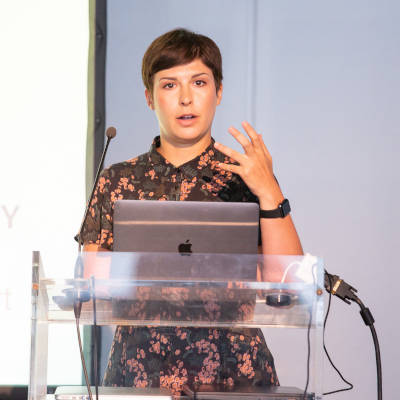
Julia Kaganskiy (US)
Julia Kaganskiy is a curator and cultural producer working across art and technology. She was the founding Director of NEW INC, the first museum-led incubator for creative entrepreneurship, founded by the New Museum in 2014. She currently serves as Curatorial Advisor for NEW INC’s artist residency program in collaboration with Nokia Bell Labs and their Experiments in Art and Technology Lab. Previously, Julia served as Global Editor of The Creators Project, a partnership between VICE Media Group and Intel. She has been profiled as an influential woman in technology by Fast Company (2011), the AOL/PBS series „MAKERS“ (2012), and Business Insider (2013) and named to Crain’s New York Business’s 40 Under 40 list (2015).
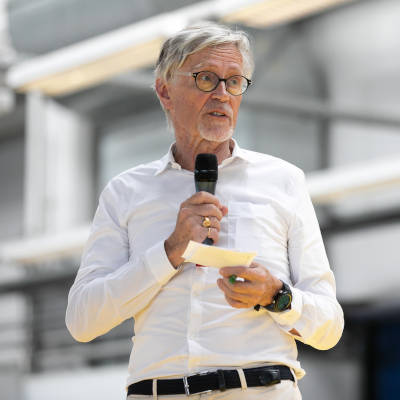
Derrick de Kerckhove (CA)
Derrick de Kerckhove is former Director of the McLuhan Program at the University of Toronto (1983-2008). Returning to Europe, he was professor at the university of Naples (2004-2014), Barcelona (2006-2015), and Visiting Professor in Ancona and now at Politecnico di Milano. Author of a dozen books in as many languages, he lives in Rome as scientific director of Media Duemila and Osservatorio TuttiMedia, his fields of research include Technopsychology, Neuro-cultural research, art and technology, Media Theory, Collaborative Educative Software, and Connected Intelligence.
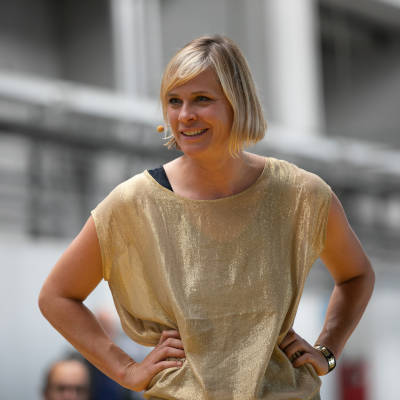
Sophie Lamparter (CH)
For the last 10 years Sophie has been building interdisciplinary networks and collaborations. She is the founder of DART, a testing lab bringing design, art, research, and technology together to build clever human machine interfaces. Before starting DART, she was Associate Director at swissnex San Francisco, Switzerland’s Innovation outpost in San Francisco. Her expertise is the digital creative industry. Being involved in scouting, presenting, match-making, scaling and funding of hundreds of projects and startups between Switzerland, Europe and the US, she knows it’s time for a new type of incubator dedicated to projects with an art and design focus.
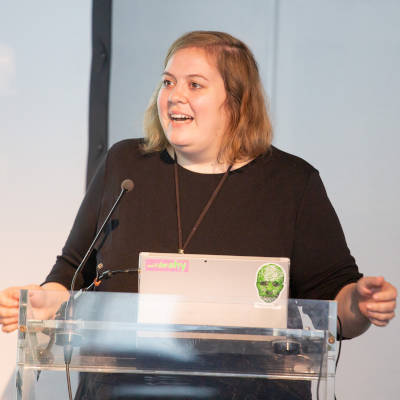
Veronika Liebl (AT)
Veronika Liebl is currently Director of Finance & Organization of Ars Electronica’s Festival, Prix, and Exhibitions divisions. She studied Economics and Management Science at Johannes Kepler University in Linz, with study visits at Harvard University (US) and Université de Fribourg (CH). She is currently working on an MBA in Innovation Management at LIMAK Linz—Austrian Business School. Since 2011 she is in charge of cultural management for the Festival/Prix/Exhibitions department at Ars Electronica Linz GmbH, responsible for finances, human resources, public funding, internal operations, and project management. Recently, she is primarily in control of all European collaboration projects under Creative Europe, Horizon 2020, and Erasmus+ and, together with her team, she has carried out numerous EU projects both as project coordinator and as partner, including the European Digital Art and Science Network.
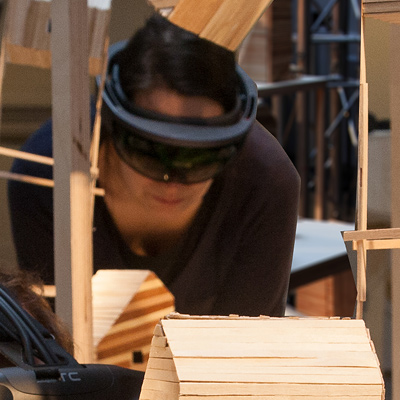
Marie Ghislaine Losseau (BE)
Marie G.Losseau is a scenographer and visual art designer.
She studied scenography at La Cambre / Brussels and visual arts at ISPG Brussels.
She develops an activity around the topics of scenography, visual installations and the organisation of workshops with kids and adults.
She worked on diverse exhibitions at Wiels/Brussels („Between“ / 2017), Musée d’Ixelles („HOP“ / 2018)…
She co-directs ATLAS, a project that mixes real models and a VR/AR experience.
The prototype of ATLAS has been played at Venice Biennale of Architecture, EU@SXSW Austin, IRCAM Centre-Pompidou Paris…
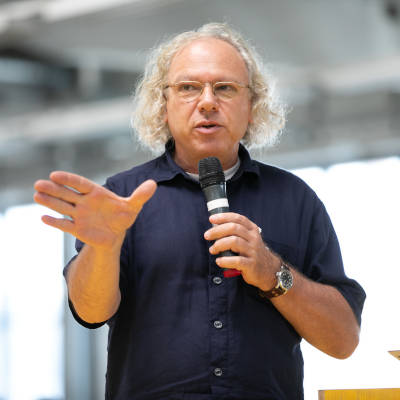
Alexander Mankowsky (DE)
Futures Studies & Ideation, Daimler AG
Alexander Mankowsky (DE) was born in Berlin in 1957 and studied social science, philosophy and psychology at Freie Universität Berlin. In 1989, he joined Daimler’s research institute in Berlin. The multidisciplinary approach of the Institute brought together a wide range of disciplines, from social sciences to artificial intelligence. His current work topics are future studies dealing with the constantly changing culture of mobility, the interdependence of social and technological innovation and other aspects in connection with possible paths into the future.
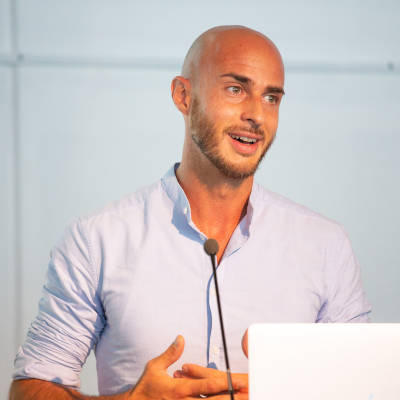
Maurizio Montalti (IT/NL)
Maurizio is co-founder and active part of MOGU (R&D Director and beyond), an innovation-driven, environmentally-conscious company, dedicated to developing and scaling-up a range of mycelium-based technologies for the production of naturally-grown biomaterials and products, able to satisfy the market demand for sustainable and high-performance alternatives. He is also highly involved in education, previously co-heading the MAD Master at Sandberg Instituut, currently holding a Research position at Design Academy Eindhoven (DAE), as well as teaching, lecturing and mentoring in different national and international academies and universities.
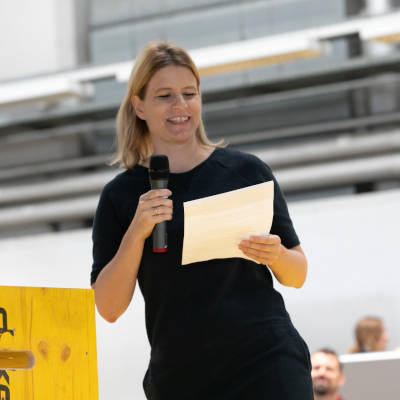
Barbara von Rechbach (AT)
Barbara von Rechbach, university assistant for design fiction at University of Arts and Design Linz (UFG), at the department for Technology & Design, guest professor at New Design University St. Pölten (NDU), lecturer for visual communication at UFG Linz and the University of Applied Science for Management & Communication Vienna. 2013-2017 award leader BA (Hons.) Graphic Design, Staffordshire University, UK. Lecturer and researcher for storytelling and media design at Berlin University of the Arts, University of Westminster, London, University of Applied Arts Vienna, et al.
Barbara is a creative director and works in exhibition design and narrative planning for clients in design and media. MA in Hypermedia Studies at the University of Westminster and Visual Media/Arts Education at the University of Applied Arts Vienna.
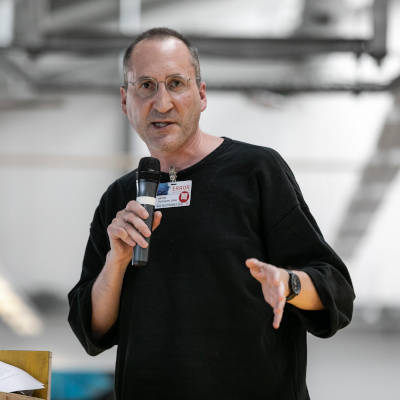
Chris Salter (CA)
hris Salter is an artist, University Research Chair in New Media, Technology and the Senses at Concordia University and Co-Director of the Hexagram network for Research-Creation in Media Arts, Design, Technology and Digital Culture, in Montreal. Salter’s performances, installations, research and publications have been presented at numerous festivals, exhibition and conferences around the world. He is the author of Entangled (2010) and Alien Agency (2015) both from MIT Press.
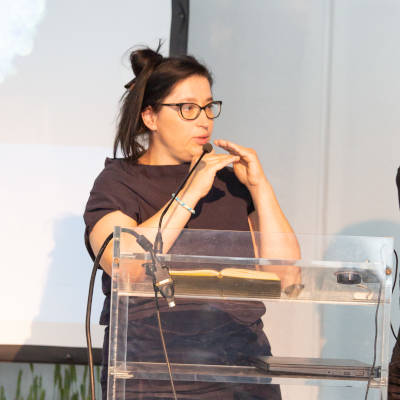
Robertina Šebjanič (SI)
Robertina Šebjanič (SI) is an internationally exhibited and awarded artist. Her artistic work deals with the cultural, (bio)political and ecological realities of aquatic environments. With her projects she tackles the philosophical questions at the intersection of art, technology and science. Her projects are often realized in collaboration with others, through interdisciplinary and informal integration in her work. She is member of Hackteria Network and Theremidi Orchestra.
robertina.net
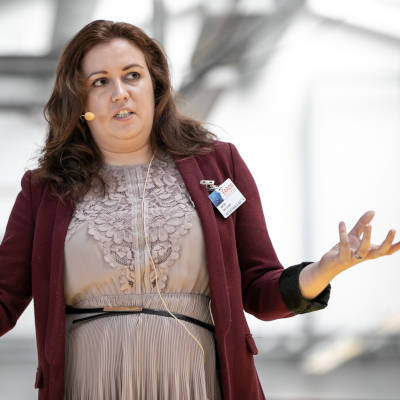
Beth Singler (UK)
Dr Beth Singler is a Research Associate at the Faraday Institute for Science and Religion, and is soon to become the Junior Research Fellow in Artificial Intelligence at Homerton College, Cambridge University. She is also an Associate Research Fellow at the Leverhulme Centre for the Future of Intelligence. She draws on anthropological fieldwork as well as research on contemporary narratives in order to explore the public understanding of AI and of what it might mean for our future.
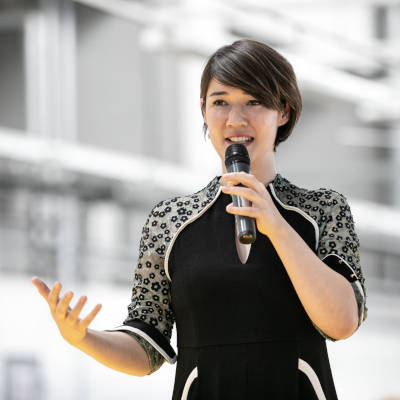
Sputniko! (JP)
Sputniko! creates film and multi-media installation works which explore the social and ethical implications of emerging technologies. From 2017, Sputniko! is an Associate Professor at the University of Tokyo where she is furthering her work with the Royal College of Art – IIS Design Lab. From 2013 to 2017, Sputniko! was an Assistant Professor at the MIT Media Lab, where she directed the Design Fiction research group. To date, she has had pieces included in the collections of museums such as the V&A and the 21st Century Museum of Contemporary Art, Kanazawa.
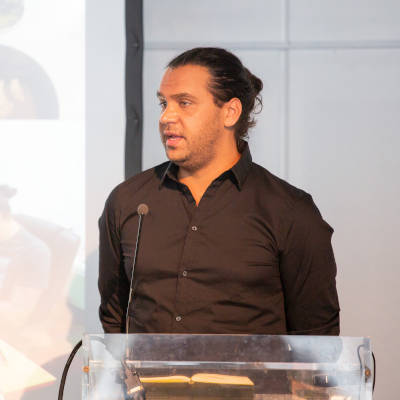
Gjino Šutič (HR)
Gjino Šutič is a biotechnologist, post-modern intermedia artist, innovator & educator. He is the founder and director of Universal Research Institute & Gen0 Industries. Gjino conducts research in several fields of science (such as biotechnology, bioelectronics, experimental electronics, ecological engineering) and postmodern new media art (Bio Art, Digital Art, Installation Art, Multimedia Art & Hybrid Art).
ur-institute.org
hr.linkedin.com/pub/gjino-sutic/58/ab/98
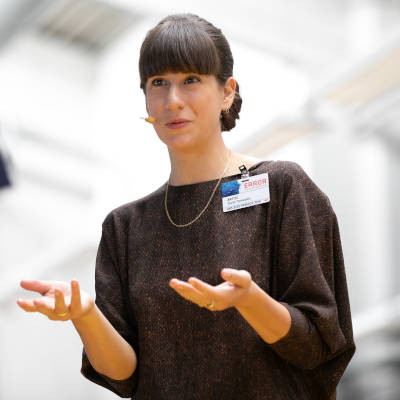
Giulia Tomasello (IT)
Giulia Tomasello is an Interaction Designer and Researcher specialised in wearables, biotechnology and material finishes for the female healthcare. She uses material research as a personal drive to question and communicate the boundaries between technology and human bodies, by developing experimental work in the intersection of medical and social sciences.
Giulia Tomasello gitomasello.com
Coded Bodies: codedbodies.persona.co
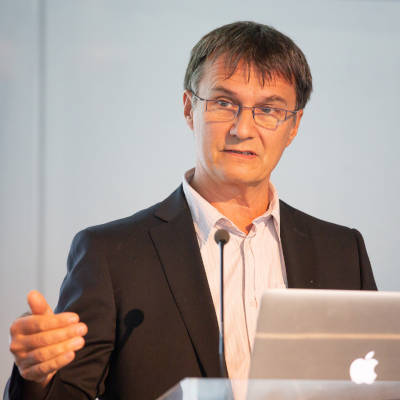
Hugues Vinet (FR)
Hugues Vinet is Director of Innovation and Research Means of IRCAM-Centre Pompidou, Paris. He will speak as coordinator of the VERTIGO project supported by the European Commission in charge of the STARTS Residencies program. Hugues has directed research and technological development at IRCAM since1994. He previously managed the research of the Musical Research Group of the French National Institute of Audiovisual where he designed the multi-awarded GRM Tools audio processing product.
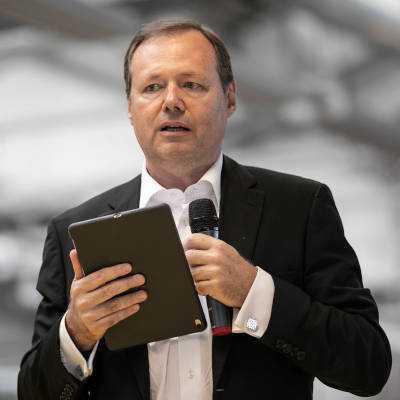
Roberto Viola (IT)
Roberto Viola is Director General of DG CONNECT (Directorate General of Communication, Networks, Content and Technology) at the European Commission. Before joining the EC, he held the position of Secretary General of AGCOM and various other positions including as Head of Telecommunication and Broadcasting Satellite Services at ESA. He served as Chairman of the European Radio Spectrum Policy group (RSPG).
Roberto Viola holds a Doctorate in Electronic Engineering and a MBA.

